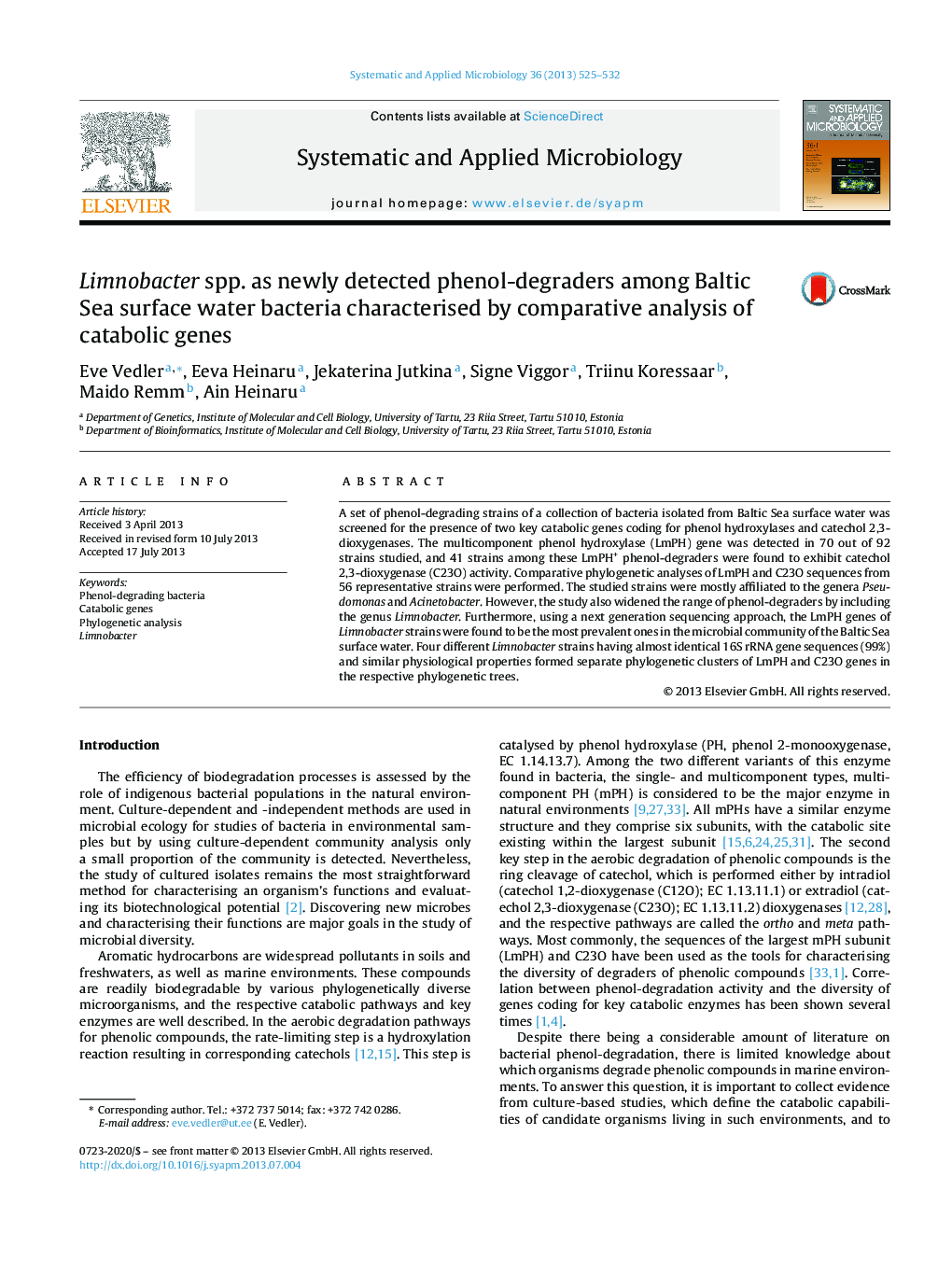| Article ID | Journal | Published Year | Pages | File Type |
|---|---|---|---|---|
| 2063000 | Systematic and Applied Microbiology | 2013 | 8 Pages |
A set of phenol-degrading strains of a collection of bacteria isolated from Baltic Sea surface water was screened for the presence of two key catabolic genes coding for phenol hydroxylases and catechol 2,3-dioxygenases. The multicomponent phenol hydroxylase (LmPH) gene was detected in 70 out of 92 strains studied, and 41 strains among these LmPH+ phenol-degraders were found to exhibit catechol 2,3-dioxygenase (C23O) activity. Comparative phylogenetic analyses of LmPH and C23O sequences from 56 representative strains were performed. The studied strains were mostly affiliated to the genera Pseudomonas and Acinetobacter. However, the study also widened the range of phenol-degraders by including the genus Limnobacter. Furthermore, using a next generation sequencing approach, the LmPH genes of Limnobacter strains were found to be the most prevalent ones in the microbial community of the Baltic Sea surface water. Four different Limnobacter strains having almost identical 16S rRNA gene sequences (99%) and similar physiological properties formed separate phylogenetic clusters of LmPH and C23O genes in the respective phylogenetic trees.
